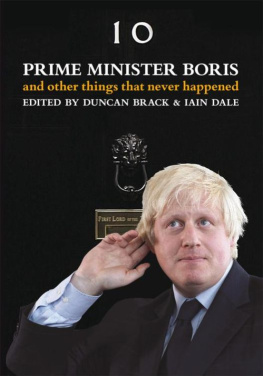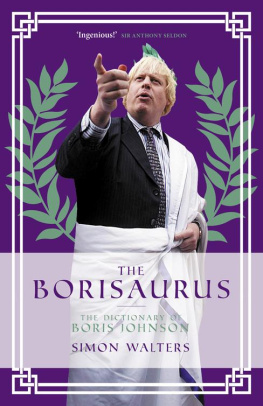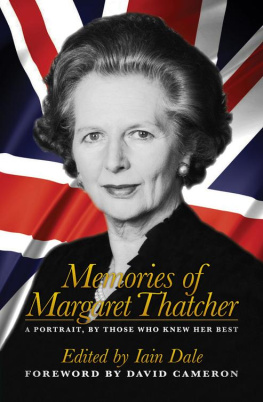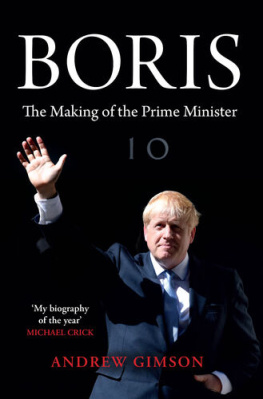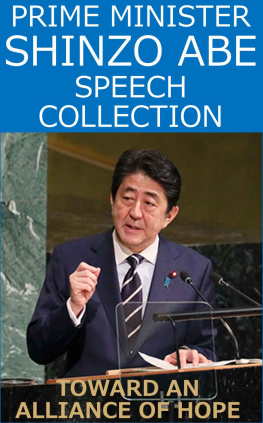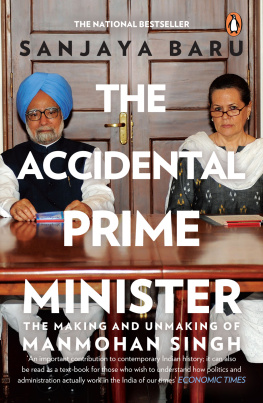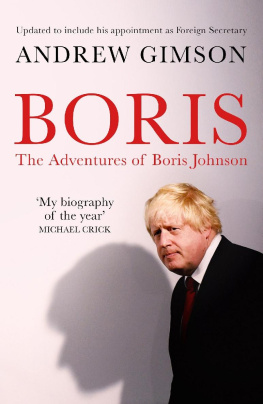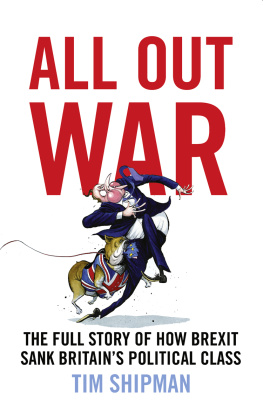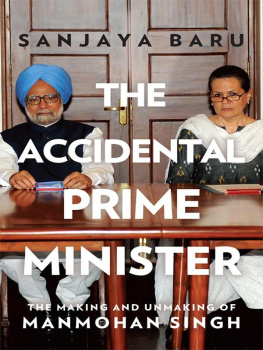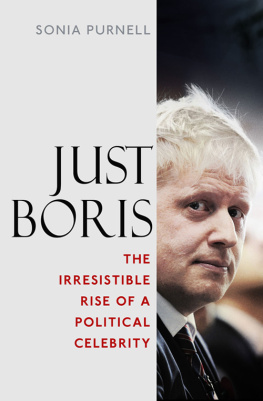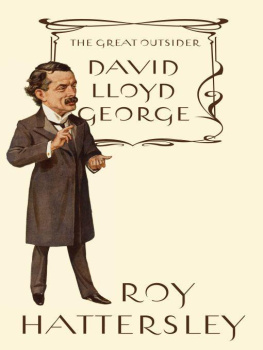Contents
1 What if Lloyd George and Keynes had gone to Russia in 1916?
David Boyle
2 What if proportional representation had been introduced in 1918?
Robert Waller
3 What if Lloyd George had done a deal with the Tories in 1931?
Jaime Reynolds
4 What if Attlee had sent Dalton to the Foreign Office and Bevin to the Exchequer in 1945?
Ted Morris
5 What if Richard Nixon had become President of the United States in 1961?
Neil Stockley
6 What if Harold Macmillan had not resigned in 1963?
Mark Stuart
7 What if the UK had never joined the EEC?
Richard Briand
8 What if Rupert Murdoch had not bought The Times in 1981?
Simon Buckby and Sam Cannicott
9 What if Mrs Thatcher had settled with the miners in 1984?
Adrian Moss
10 What if Margaret Thatcher had won the 1990 Conservative leadership contest?
Graham Kirby
11 What if the coup against Gorbachev in 1991 had succeeded?
Christian Walker
12 What if Gordon Brown had stood for the Labour leadership in 1994?
Peter Riddell
13 What if the United Kingdom had not gone to war in Iraq in 2003?
Tony McNulty
14 What if David Davis had been elected leader of the Conservative Party in 2005?
Iain Dale
15 What if Tony Blair had remained as Prime Minister?
Jane Griffiths
16 What if Gordon Brown had called an election in 2007?
Philip Cowley
17 What if Hillary Clinton had secured the Democratic nomination in 2008?
David Bean
18 What if Harris and Marris had won in 2010?
Matt Cole
19 What if Nick Clegg had opted for confidence and supply rather than full coalition in 2010?
David Mills
20 What if Pope Benedict had been assassinated on his visit to Britain in 2010?
Andy Mayer
21 What if Ken Livingstone wins the 2012 London mayoral election?
Mark Munro
22 What if Boris Johnson becomes Prime Minister in 2016?
Sam Macrory
Duncan Brack and Iain Dale
People make their own history but they do not make it just as they please; they do not make it under circumstances chosen by themselves, but under circumstances directly encountered, given, and transmitted from the past.
Karl Marx
H ere in this book you will find twenty-two examinations of things that never happened, from John Maynard Keynes being drowned at sea in 1916, to Richard Nixon being elected President of the United States instead of John F. Kennedy, to the United Kingdom staying out of war in Iraq in 2003, to the Liberal DemocratConservative coalition government not being formed in 2010. And you will also find two things that havent happened yet
This is the third in the series of books of political counterfactuals one or both of us has produced, the others being Prime Minister Portillo and Other Things That Never Happened (2003) and President Gore and Other Things That Never Happened (2007). Although serious historians tend to look down their noses at at the study of counterfactuals, they have a distinguished record. Winston Churchill contributed a chapter (on what if Robert E. Lee had won the battle of Gettysburg) to a 1931 collection called If It Had Happened Otherwise, and other counterfactual analyses have been published by historians and sociologists such as Robert Fogel, Geoffrey Hawthorn and Niall Ferguson. Earlier in 2011, Biteback published Francis Becketts collection The Prime Ministers Who Never Were.
We believe that counterfactual history does have value. It can reinforce the analysis of what actually happened by identifying the points at which things could have happened differently, and the relevance at each of these key points both of individual choices and of broader socio-economic forces. It can help in analysing the causes underlying particular events; arguably, as Fogel pointed out, in making claims for causes of any kind, historians are always implicitly considering and discarding potential counterfactuals.
Ferguson used his volume Virtual Hisory: Alternatives and Counterfactuals to illustrate his objections to deterministic theories of history such as Marxism, and to put forward the case for the importance of contingency in history. But counterfactuals can also illustrate the limits on contingency and the constraints on individual choice. As Marx himself argued, in the quotation at the head of this introduction, it is the interaction between individual choices and historical context which governs the events of the past.
To achieve these aims, the counterfactuals must of course be plausible. Start to change one decision or happening or event in history, and it can be difficult to justify not changing others. There have to be boundaries, and the more rigorously these are policed the more convincing and the more analytically useful the results become. So the chapters in this book are limited to occasions where very little needed to have happened differently for the ultimate outcome to have been transformed and, mostly, to changed individual choices or actions set against unchanged economic and social backgrounds.
Three of the chapters, for example, deal with deaths (of Lloyd George and Keynes in 1916), an illness (or, rather, the lack of it, in the case of Macmillan in 1963), and a succesful coup (rather than the failed one against Gorbachev in 1991). Each, and particularly the first, could have had profound consequences for the modern world yet each needs no great adjustment in political, social or economic circumstances to be plausible.
Other chapters focus on individual choices: of Attlees decisions over cabinet posts in 1945, of Blairs over his resignation in 2007, and of Browns over the calling of an election in the same year. All these decisions are the sole preserve of the Prime Minister, and these counterfactuals require no assumptions other than over one mans choices. Others look at collective decisions which could have turned out differently: over British membership of the European Economic Community in 1972 (a neat counterpoint to the chapter on What if the Britain had entered the Common Market in 1957? in President Gore), of the governments handling of the miners strike in 1984, and over the UKs participation in the war in Iraq in 2003. One chapter looks at the outcome of a commercial decision taken differently, if Rupert Murdoch had failed to buy The Times in 1981 an intriguing possibility with a very up-to-date resonance.
Since, like its predecessors, this is a book of political counterfactuals, several chapters examine possible alternative election outcomes, including those of the US presidential election of 1960 (in reality, Nixon almost won) and of the 2010 general election here in the UK. That result was so close that if a mere 3,000 Conservatives had voted differently, no fewer than sixteen seats would have changed hands. Possibly, however, as is argued here, the outcome in terms of the government would have been the same at least to start with
The 2010 result and the actual outcome of the election the Liberal DemocratConservative coalition took almost everyone by surprise; at the start of the negotiations, this was seen as a highly unlikely conclusion. Another chapter examines the consequences of what was seen then as a more probable arrangement, a confidence and supply agreement between the two parties. Maintaining the coalition theme, another chapter analyses a possible alternative outcome to the formation of the National Government from the political crisis of 1931.
General elections having been rather thoroughly dealt with in this books two predecessors, several chapters here look at different outcomes of internal party elections, including Mrs Thatcher winning the Conservative leadership contest in 1990, Gordon Brown standing for the Labour leadership in 1994, David Davis being elected Conservative leader in 2005, and Hillary Clinton securing the Democratic presidential nomination in 2008.

